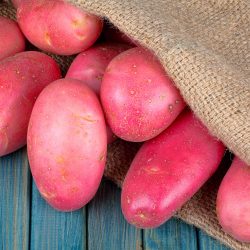If you're new to preparing fries, there's a lot of methods you will come across. One that might have caught your eye is blanching. What does blanching mean? Does it help in making the perfect batch of fries? If that's what you're wondering, let's find out!
There are many benefits to blanching your French fries before you cook them! In fact, some claim that deciding to blanch them can make or break your French fries. To blanch them, you will need to cut them into uniform pieces first. Add them to a deep saucepan with cold water and bring to a boil. Leave it for 5 minutes and then remove and dry.
These are the general steps to blanching French fries. The answer above might have you curious to know more. What benefit does blanching give to French fries? Are there other ways to blanch them? If you'd like to know this and more, keep reading ahead.
![Frozen French fries in a frying pan, How To Blanch French Fries [And Should You?]](https://kitchenseer.com/wp-content/uploads/2021/09/How-To-Blanch-French-Fries-And-Should-You-.png)
What Does It Mean to Blanch French Fries?
Before we go over the benefits of blanching, it's crucial you understand why this process helps obtain an ideal result.
And, for those who don't know, what does blanching mean for fries? So, let's cover what blanching is, what it does for fries, and what other dishes might benefit from this technique.
Blanching is a technique that involves boiling food and then shocking it. Or, as you might be more familiar with, you let the produce go through a temperature shock.
The process involves scalding something in boiling water and then transferring it into iced water. By doing this, you halt the cooking process.
But, what does this matter when you're cooking French fries?
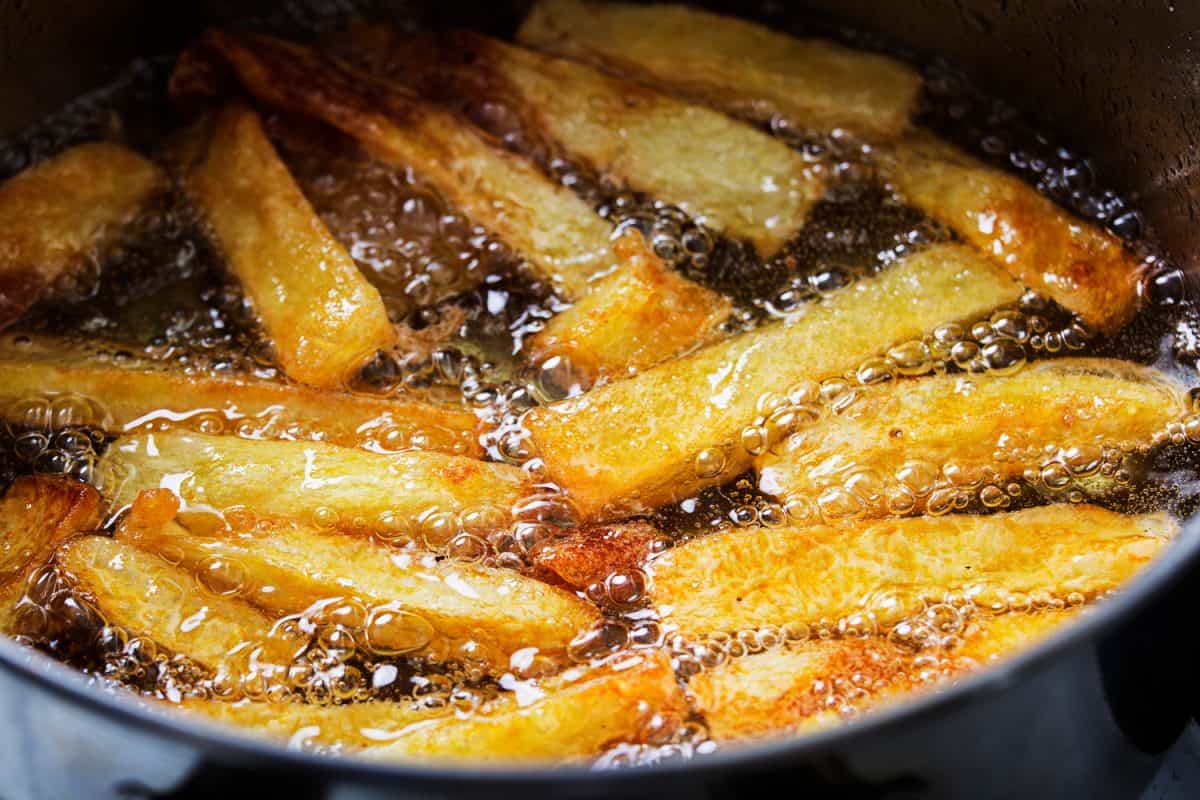
The Benefits
Blanching fries before cooking them helps retain the quality. By this we mean, it halts the browning effect that might be a burden to some.
Typically, when you cut a potato, you'll have to use it immediately, or else it will begin to brown quickly. By blanching a potato beforehand, you deactivate the enzymes that make this process occur.
So, if you have to wait until friends or family come over, blanching can help you prepare the potatoes before it's time to use them. As some suggest, you can store them for 12-24 hours before being fried.
If you're not in a rush to cook them right away, freezing the fries can also aid in creating the perfect batch of fries! Some chefs recommend you freeze them beforehand.
Back to the topic of blanching, it also helps reduce moisture in the potato. The less water content it contains, the easier it can develop that outer crisp you crave.
Lastly, the shocking phase shrinks the cells of the potato. Meaning, it won't absorb as much oil when you're frying it.
In essence, it adds texture and taste to the final product. So, if you're constantly producing a batch of soggy fries, blanching can seem like a solution.
How Long Do You Blanch Potatoes for French Fries?
Now that we know what blanching can do for us in our adventure of cooking fries, there's still more left to discover. How long do you blanch potatoes? The answer depends on the thickness of the French fries.
In general, 1-inch thick fries should blanch anywhere from 3-5 minutes from the moment they hit the water. If you're looking for recipes, the timeframe will vary according to the chef's specifications.
Before we get to look over French fry recipes that involve blanching, let's go over the difference between blanching in water and oil.
Blanching Fries in Water vs. Oil
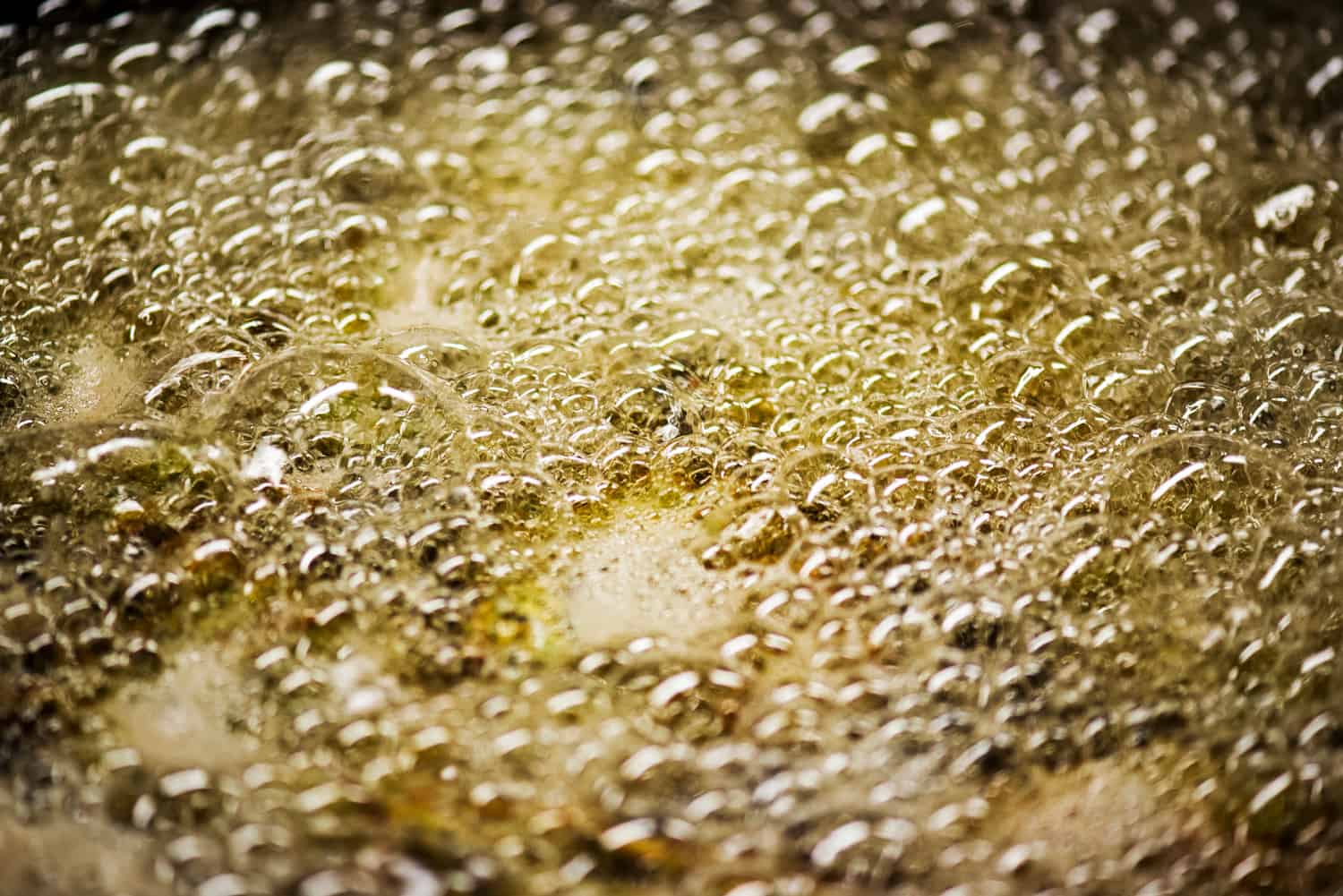
Blanching in water or oil is a tricky topic regarding French fries. When you blanch French fries in water, you'll most likely also employ the double-frying method to ensure a crisp end product.
But, the double-frying process also contains its own blanching manner.
Instead of bringing water to a boiling point and letting potatoes blanch for 1-2 minutes, you're doing it with oil.
In either case, you're slightly cooking the potatoes at a low temperature for the initial phase. Does using oil over water have its benefits?
Is One Better Than the Other?
Some suggest using oil instead of water as a form of dry-heating method. If you're confused as to what that means, it means that it prevents the leaching of water-soluble vitamins or pigments.
Does water have any benefits over oil blanching? We can't say.
The results are inconclusive. So, if you're looking after recipes, it's crucial to pay attention to detail. As far as we can tell, it all comes down to preference.
Can You Freeze French Fries After Blanching?
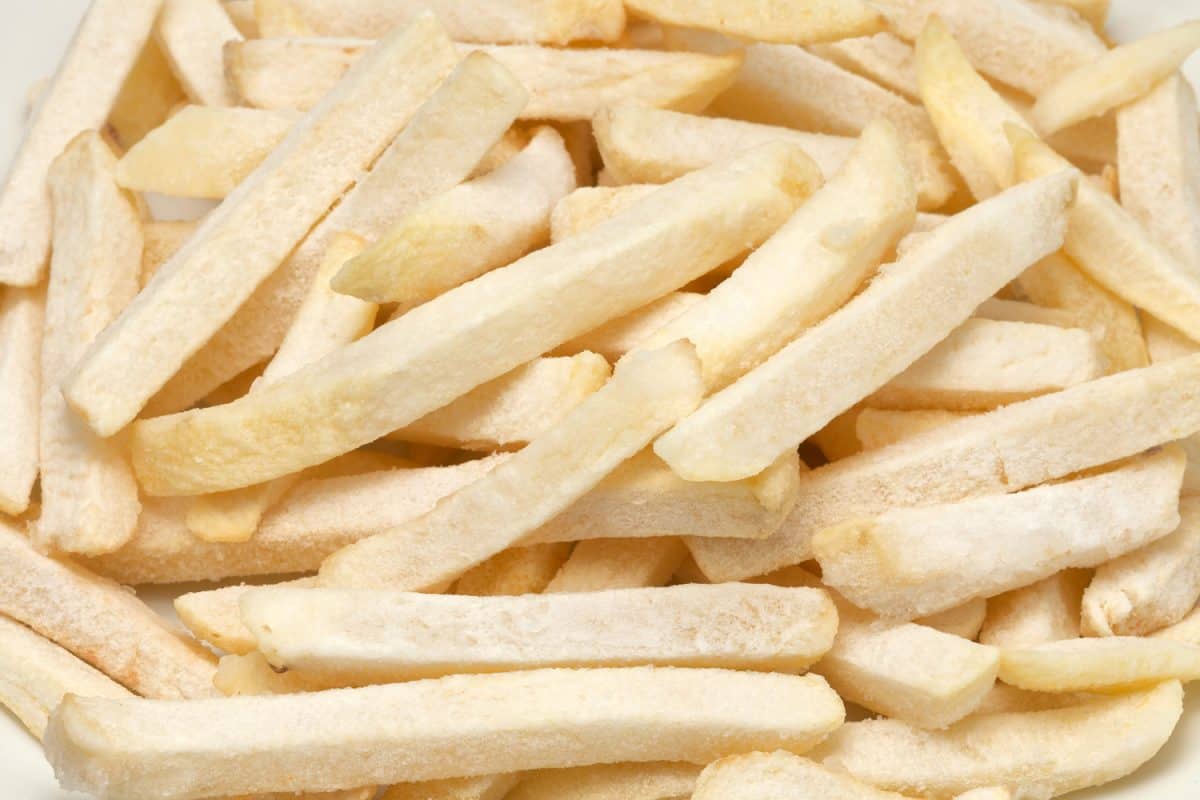
Let's say you don't want to use the potatoes right away. Instead, you're prepping for the next family gathering. So, your go-to preserving method would be to freeze the French fries. But, can you freeze them? Does it have its downsides?
Fortunately, yes, it's perfectly fine to freeze the fries after blanching them. In fact, freezing them after blanching is a common practice in many recipes. It begs the question, why is freezing necessary? Is there a secret to it?
As one chef experimented, freezing allows you to produce the fluffy inside and crispy outside we all know and love.
If you need an example of what kind of result it creates, think about a fresh batch of McDonald's French fries. But, how does it do that?
As the chef explains, freezing the fries allows the moisture to form sharp and jagged crystals.
In this form, it penetrates the cell structure of the potato easily, meaning more of the water content leaves the French fries. As a result, you get a golden-crisp fry with a fluffy interior.
Recipes
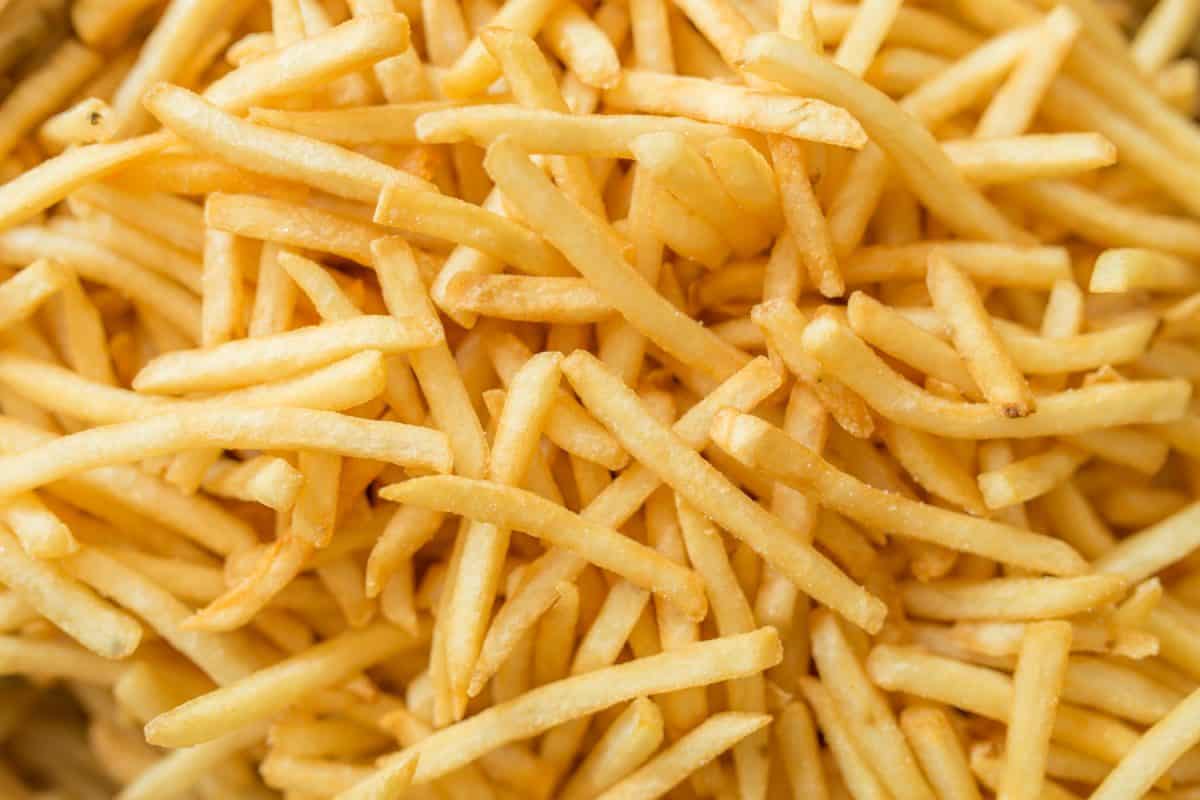
Of course, after explaining the process, we can't leave you hanging! At this point, it might have you excited to try out this new method that you've learned. So, let's go over a couple of recipes that you might want to give a try!
The First Batch with Oil Blanching
For this recipe, the ingredients you will need are:
- Four large russet potatoes
- Your choice of frying oil (preferably peanut or grapeseed)
- Sea salt
- Black pepper
The first step of this recipe is to choose a good set of potatoes. This recipe calls for potatoes that are high in starch. So, you'll need russet potatoes for the job. Now, you'll need to:
- Peel the potatoes and store them in cold water. Take them out of storage and pat them dry. The size you will cut them in depends on preference. Though, they will need to be uniform to ensure they all cook at the same rate.
- You will need a heavy-bottomed pot. Pour your peanut or grapeseed oil inside until it reaches about 2-inches high. Put it over medium heat. Temperature-wise, it should reach around 300-325 degrees Fahrenheit.
- Now, we blanch the potatoes. You want to make sure the fries are dry before you place them inside. So, take a towel and pat them to remove excess moisture. Slowly lower small batches and allow them to blanch for 1 1/2-2 minutes. Your fries should not turn golden at all.
That covers the blanching process of the recipe. If you'd like to take a deeper look, check out this recipe.
Blanching with Water
For this recipe, you'll need:
- Two pounds of russet potatoes
- Water
- Trays of ice cubes
- Avocado oil (or any of your choice)
- Salt and seasoning (of your preference)
To start the process, you will need to:
- Start by washing your potatoes, peeling, and patting dry with a towel.
- Using a large bowl, fill it with cold water. You will place the fries in here after you've cut them.
- Cut the French fries at 1/2-inch thickness. Again, place them into the cold water as you go.
- Now, we'll begin blanching the fries. Take a large pot and fill it with water. Set the large pot over high heat until it begins to boil. Take another bowl and fill it with water and ice cubes.
- Don't dip all the fries into the boiling water at once. Work in batches. Blanch them for 3 minutes each.
- After 3 minutes, take the fries and place them into the bowl with ice cubes. Allow them to cool for 15 minutes.
- Dry the batches of fries.
- Next, you want to space it out on a parchment-lined pan evenly. Freeze until you're ready to use them.
That covers the blanching process using water. If you'd like to find out more, check out this recipe.
One quick thing to note, the amount of time you blanch the fries depends on the firmness of the potato. So, your experience may vary. All in all, the end product on blanching should not be mushy or golden.
Final Takeaway
![Frozen French fries in a frying pan, How To Blanch French Fries [And Should You?]](https://kitchenseer.com/wp-content/uploads/2021/09/Frozen-French-fries-in-a-frying-pan-1200x800.jpg)
The more you look into how to prepare fries, the more it starts to look like a science! Of course, with a bit of research and practice, we'll get closer to perfecting our batches of fries. We hope you found the information above insightful!
Before you go, do you have other potato concerns? Are you thinking about making some mashed potatoes? You might want to know how many potatoes you'll need. To find out more, check out our post here.
Do you need a little more help in preparing mashed potatoes? Different kinds of potatoes require different boiling periods. If you need to know how long to boil them, check out our post here.
Until next time!

![A bowl filled with fresh french fries, How Big Is A Serving Of French Fries? [And How Many Fries Are In One?]](https://kitchenseer.com/wp-content/uploads/2021/09/A-bowl-filled-with-fresh-french-fries-250x250.jpg)
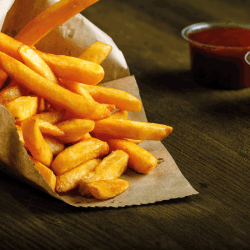
![Bown with fresh cooked french fries potato chips with belgian mayonnaise sauce close up - How Much French Fries Per Person? [And How To Make Them Healthier]](https://kitchenseer.com/wp-content/uploads/2022/05/Bown-with-fresh-cooked-french-fries-potato-chips-with-belgian-mayonnaise-sauce-close-up-250x250.jpg)
![Grilled tenderloin with French fries and salad, How To Grill French Fries [Inc. 11 Must-Try Recipes]](https://kitchenseer.com/wp-content/uploads/2021/09/Grilled-tenderloin-with-French-fries-and-salad-250x250.jpg)

